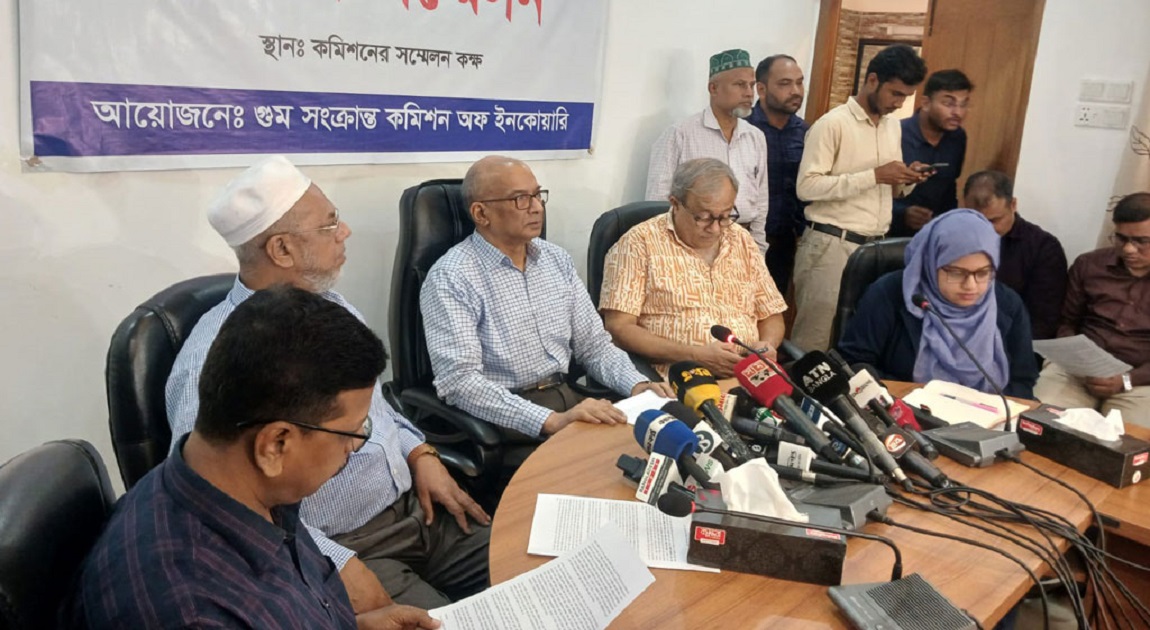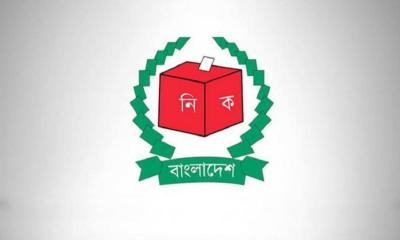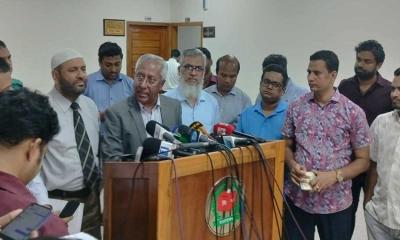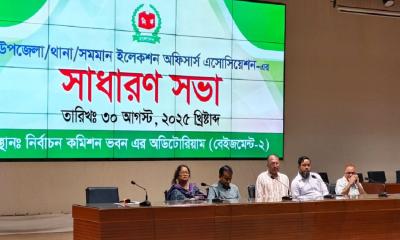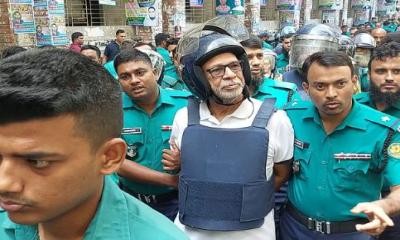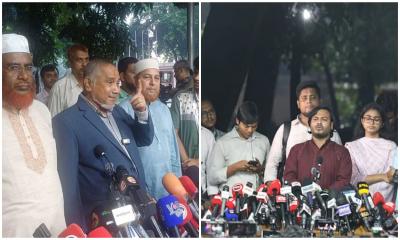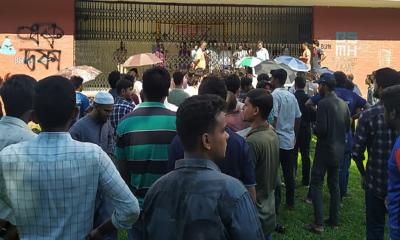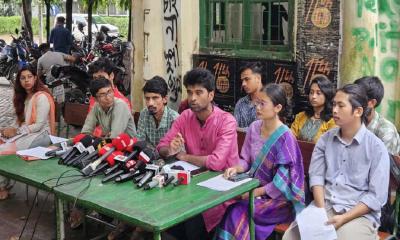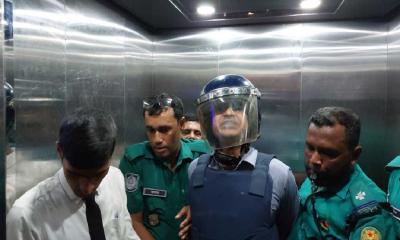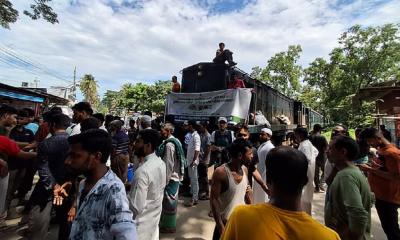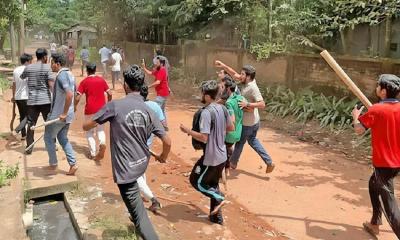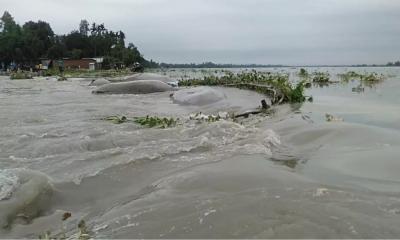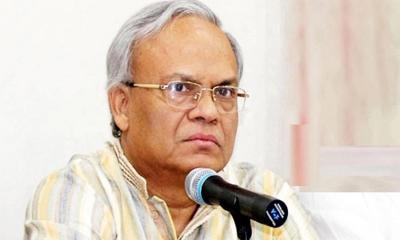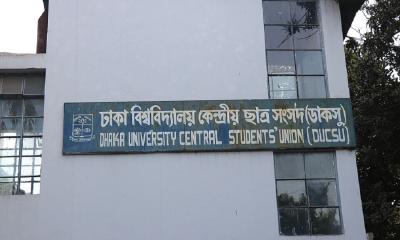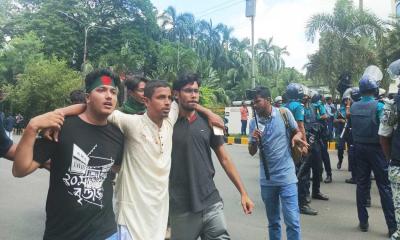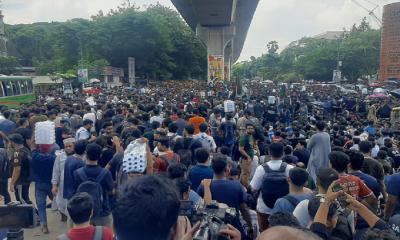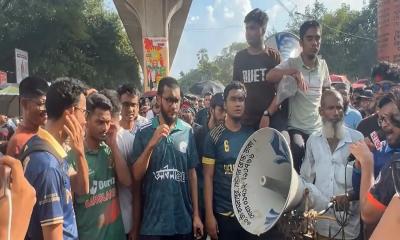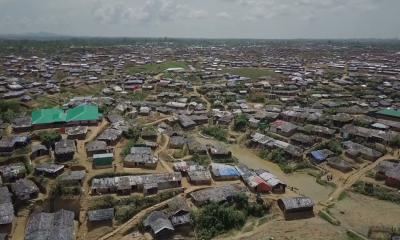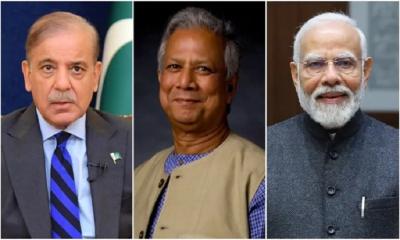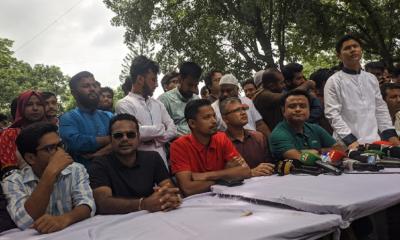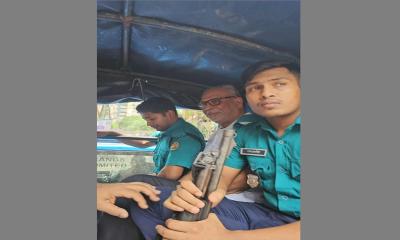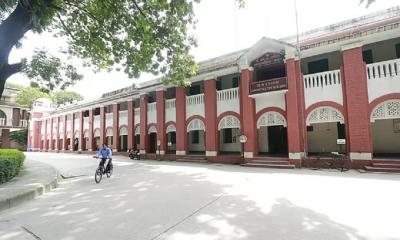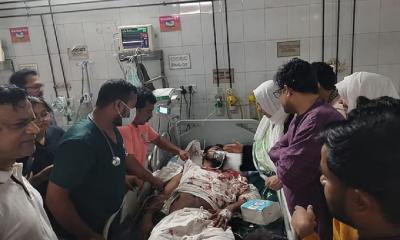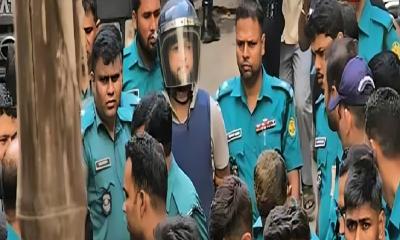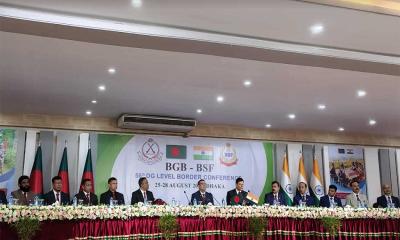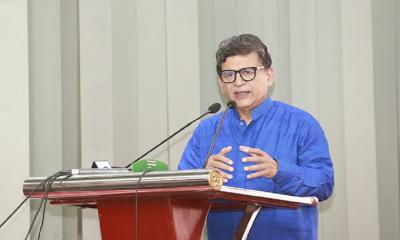The Commission on Enforced Disappearances has revealed that many officials involved in enforced disappearances during the tenure of the former Awami League government continue to hold positions at the center of state power.
The commission also confirmed that these individuals are actively intimidating victims and witnesses.
At a press briefing in Gulshan, Dhaka, on Thursday, the commission’s chairman, Justice Moinul Islam Chowdhury, stated that disclosing the names of those involved could endanger the lives of the victims. "The perpetrators are still threatening the victims. We even have audio evidence of such threats," he said.
Justice Chowdhury emphasized that the commission is withholding the names of those identified to prioritize the safety and security of the victims, many of whom are already living in trauma.
He clarified that the responsibility for ensuring the security of victims and witnesses now lies with the International Crimes Tribunal (ICT), as the commission does not have the institutional mechanisms to provide protection.
Commission member Nur Khan added that, considering both victim safety and the risk of suspects fleeing, the commission is unable to publicly disclose further details at this stage.
Following the fall of the Awami League government amid a massive student and public uprising, the issues of enforced disappearances and secret detention facilities—referred to as "Ayna Ghar"—resurfaced. On August 27, the interim government formed the five-member disappearance investigation commission led by retired Justice Moinul Islam Chowdhury.
The commission submitted its first interim report on December 14, which publicly alleged that former Prime Minister Sheikh Hasina was implicated in authorizing disappearances during her time in office.
The second interim report was submitted on June 4, which included detailed accounts from victims and law enforcement officers describing torture and forced confessions.
The commission’s investigation focuses on cases that occurred between January 6, 2009, and August 5, 2024. So far, the commission has received 1,850 complaints and has verified 1,350 of them for the second report.
When asked about efforts to locate missing persons, Justice Chowdhury clarified that the commission`s role is limited to inquiry, not criminal investigation.
He noted that the responsibility for conducting formal investigations and search operations lies with the police and the International Crimes Tribunal.
Commission member Sazzad Hossain explained that the commission is actively pursuing its inquiry through four key approaches. First, it has submitted 131 cases to the police, requesting formal investigations and efforts to trace the missing individuals. Second, the commission has independently conducted inspections of secret detention facilities based on credible information. Third, it has sought a list from the Ministry of Home Affairs detailing Bangladeshis currently incarcerated in India, aiming to cross-match those names with the profiles of the disappeared persons.
Sazzad Hossain noted that no missing person has yet been definitively identified through these processes.


